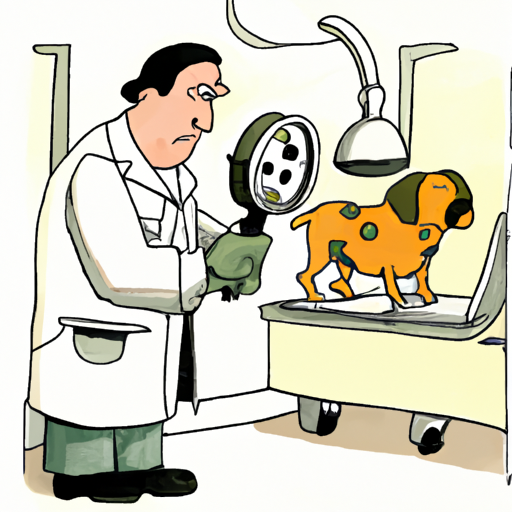Recognizing Early Warning Signs
As a caregiver, you’re the first line of defense in protecting your furry friend’s health. By keeping a watchful eye on your dog’s behavior and physical condition, you can detect early signs of cancer, potentially saving their life.
Here are some signs you should not ignore:
- Unexplained weight loss
- Loss of appetite
- Difficulty breathing
- Excessive thirst and urination
- Persistent limping or stiffness
Understanding the Common Types of Dog Cancer
Several types of cancer are more common in dogs. Recognizing these can help you stay informed about what to look out for:
- Osteosarcoma: Primarily affects the bones and is most common in large breed dogs.
- Hemangiosarcoma: Affects the blood vessels and is common in medium to large breed dogs.
- Lymphoma: Affects the lymph nodes and is common in all breeds and sizes of dogs.
- Mast Cell Tumor: Affects the mast cells in the skin, common in older dogs.
Regular Vet Check-ups are Essential
Regular vet check-ups are crucial in detecting cancer early. Your vet will perform a thorough physical examination and may recommend additional tests if they suspect cancer. A comprehensive check-up can include:
| Test | Description |
|---|---|
| Blood tests | Checks for abnormalities in blood count |
| Urine tests | Detects any signs of infection or disease |
| Biopsy | Removes a small piece of tissue for testing |
| X-ray | Visualizes bones and organs for any abnormalities |
Preventative Measures to Consider
While there’s no surefire way to prevent cancer in dogs, certain measures can be taken to reduce the risk:
- Feed your dog a balanced and nutritious diet
- Exercise your dog regularly
- Limit exposure to toxins and carcinogens
- Spay/neuter your dogs, as certain cancers are related to reproductive hormones
Frequently Asked Questions
Q: Are certain dog breeds more prone to cancer?
A: Yes, certain breeds like Boxers, Golden Retrievers, and Rottweilers have a higher cancer risk.
Q: Does neutering or spaying reduce cancer risk?
A: Spaying or neutering can reduce the risk of certain types of cancers, such as mammary cancer or testicular cancer.
Q: Can dogs recover from cancer?
A: Recovery depends on the type of cancer, the stage it’s detected, and the treatment given. Early detection is key.
Remember, you know your pet better than anyone. If you notice changes in their behavior or appearance, don’t hesitate to contact your vet. Your vigilance can make all the difference in your dog’s health and happiness.



